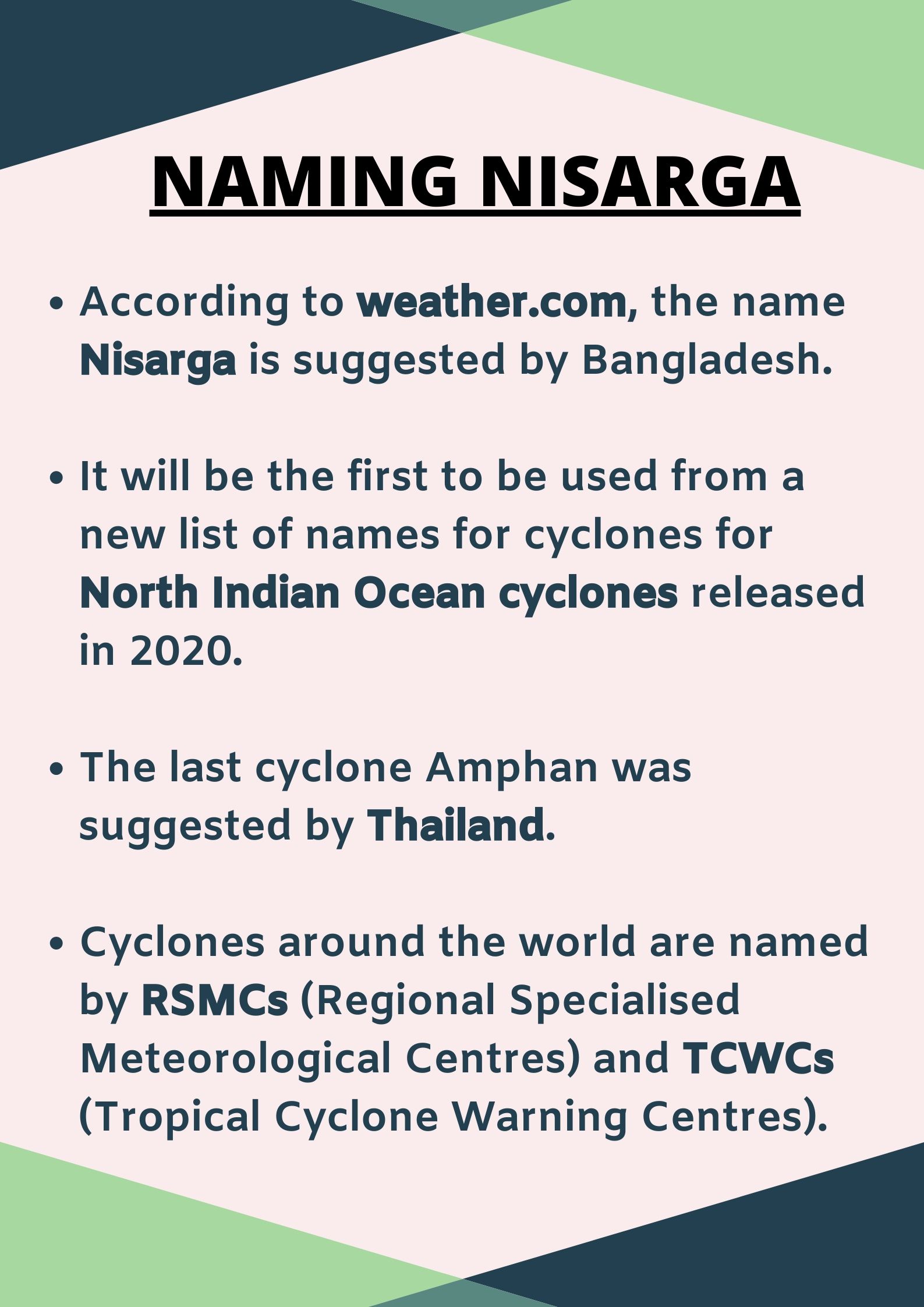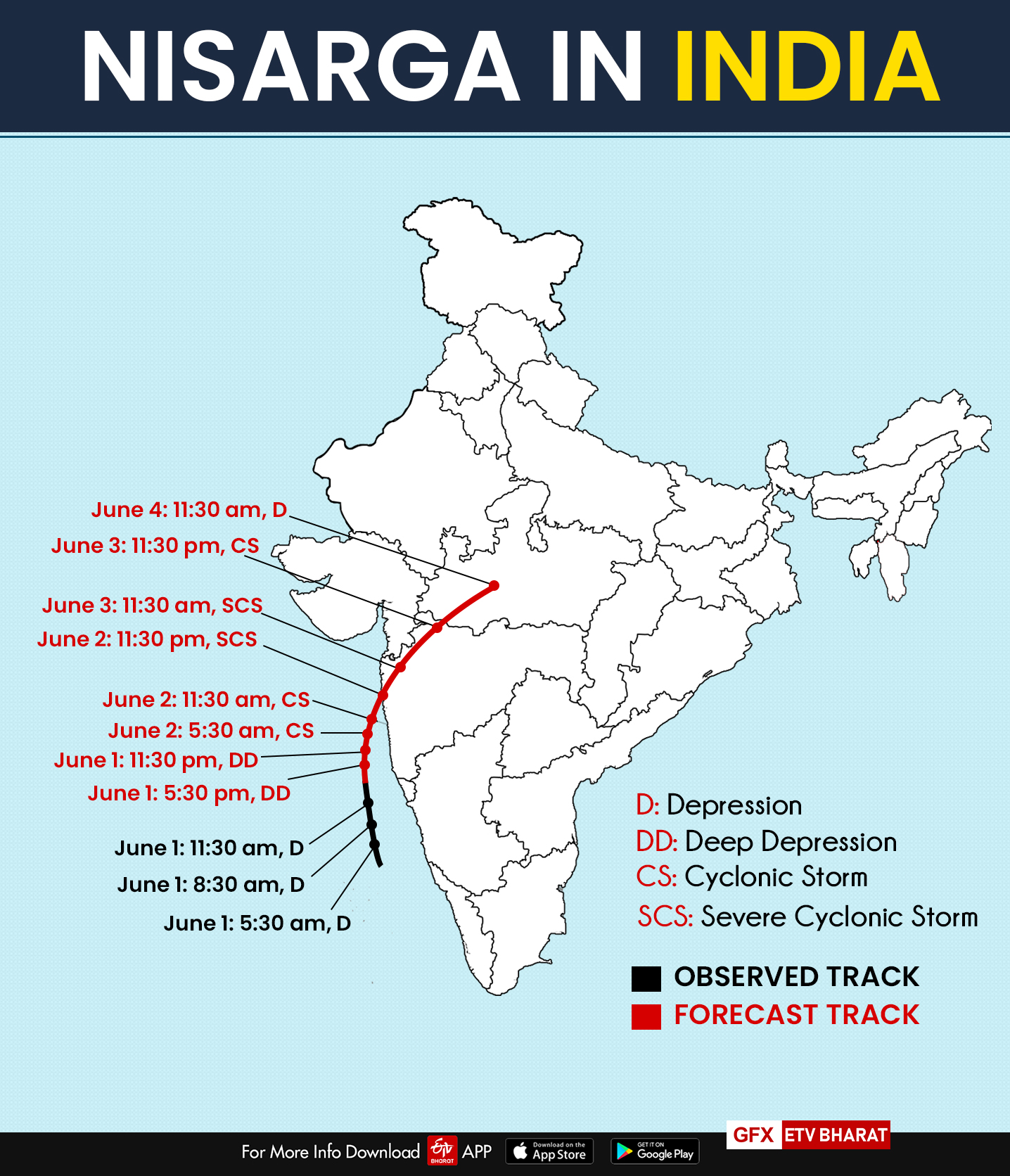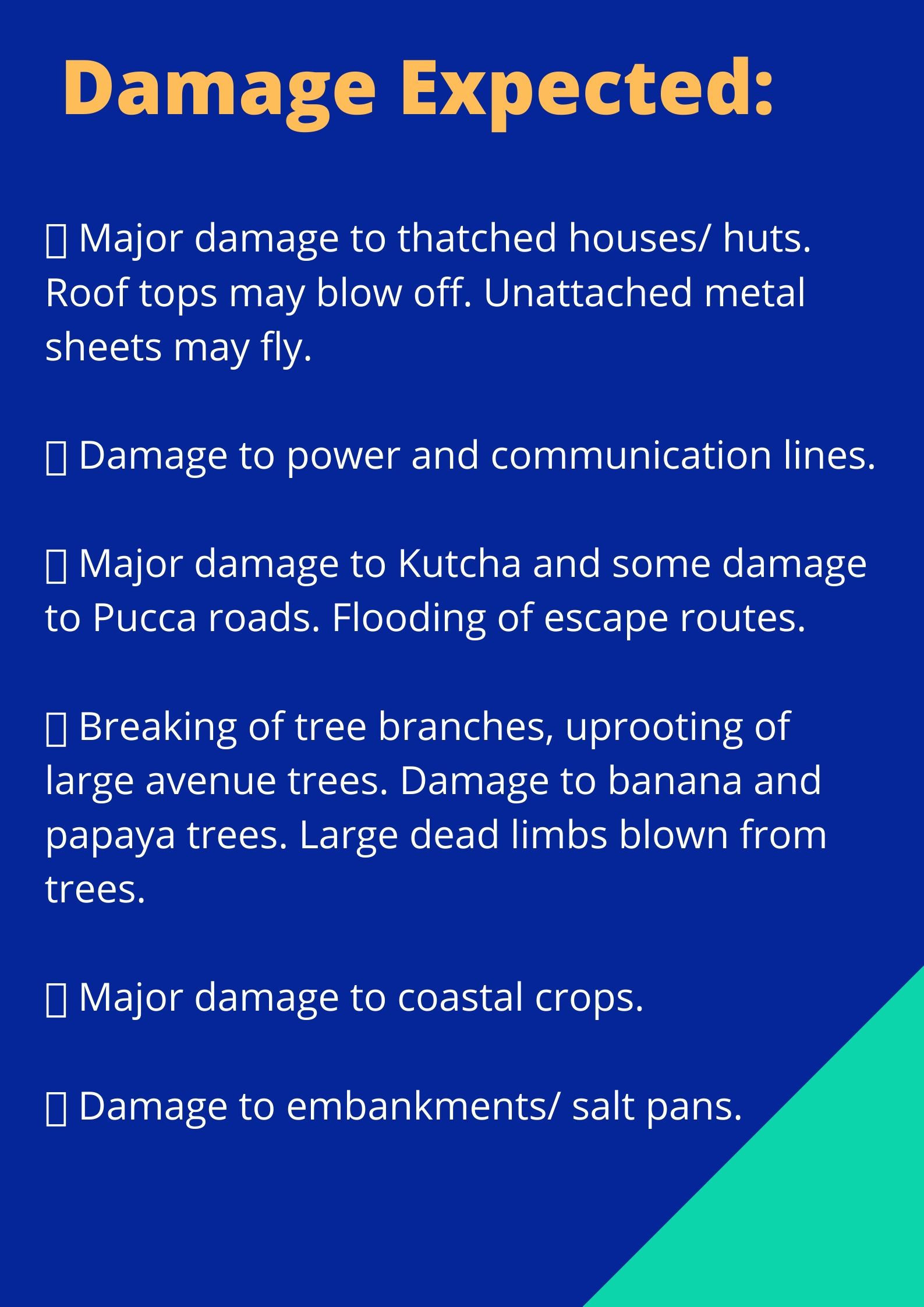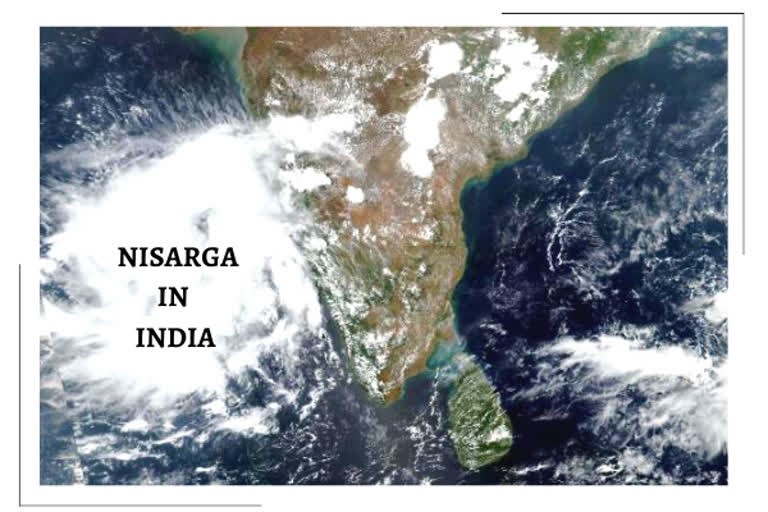Hyderabad: It's not even been two weeks since Cyclone Amphan left trails of destruction in West Bengal and Odisha and another cyclone named as Nisarga is already heading towards the coastline of north Maharashtra and South Gujarat.
According to the India Meteorological Department (IMD), Nisarga is likely to make landfall between Harihareshwar in Maharashtra’s Raigad and Daman on June 3.
It is now slated to further turn into a cyclonic storm in 12 hours and then into a severe cyclonic storm in the subsequent 12 hours.
Low pressure, depression, and deep depression are the first three levels used by the IMD to classify cyclones based on their intensity.
Whereas, as per another researcher at the same institute, 'Nisarga' will be only the second cyclone in recorded history that will be hitting the Maharashtra coast in the pre-monsoon season i.e. April-June.

Naming Nisarga
The name of the first tropical storm of the year begins with letter A, followed by B and so on. In the Indian Ocean region, the naming of cyclones began in 2000, and formula was agreed in 2004.
Eight countries across the region: India Maldives, Sri Lanka, Pakistan, Oman, Thailand, and Bangladesh contributes to a set of names. The list of countries was extended in 2018 with the joining of Qatar, Iran, Saudi Arabia, UAE, and Yemen.
According to weather.com, the name Nisarga is proposed by Bangladesh.
It will be the first to be used from a new list of names for cyclones for North Indian Ocean cyclones released in 2020.
The last cyclone Amphan was suggested by Thailand.
Cyclones around the world are named by RSMCs (Regional Specialised Meteorological Centres) and TCWCs (Tropical Cyclone Warning Centres). There are a total of six RSMCs and five TCWCs, including IMD.

Reasons why cyclones are more frequently formed in Bay of Bengal
More cyclones are generated in the Bay of Bengal and cyclones here have also been more severe than the one formed over the Arabian Sea.
One of the reasons why tropical cyclones are more prone to the Bay of Bengal is that its surface temperature is more than that of the Arabian Sea. Tropical cyclones generally need a temperature of around 28 degrees Celsius. The Bay of Bengal is more conducive to this than the Arabian Sea.
Most of the cyclones in the Arabian Sea are local. They collapse a little after making landfall as there is no back-up supply.

Cyclone Nisarga: Preparations
The governments of Maharashtra and Gujarat have sounded alerts in their respective states. The predicted cyclone will be an added cause of worry for the two states, which are among the worst affected in the still-raging novel coronavirus pandemic (Maharashtra leads the national tally in both patients and deaths).
Earlier today, Maharashtra CM Uddhav Thackeray held a meeting with Home Minister Amit Shah and briefed the latter on the preparations made by the state government to tackle the situation. As reported earlier, a Red alert has been issued to Mumbai city, Mumbai suburbs, Thane, Palghar, Raigad, Ratnagiri, and Sindhudurg. Fishermen have been asked to not venture out in open seas in the coasts of Konkan and Gujarat.
The NDRF has just had a first-hand experience of carrying out relief and rescue work during a cyclone while also dealing with the menace of the novel coronavirus -- Amphan in West Bengal and Odisha.
ALSO READ: Cyclone Nisarga likely to make landfall near Alibaug tomorrow



